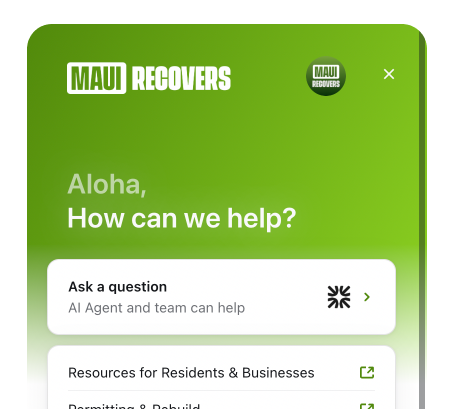July 1, 2025
FEMA Weekly Fact Sheet - July 1 (DR-4724-HI WFS-037)

County of Maui Recovery Permit Center
A vital resource for those who are looking to rebuild in fire-affected areas in Lahaina and Kula as they navigate the permitting process and take the next step toward returning home.
County of Maui Service Center
110 Alaihi St., Suite 207
Monday to Friday: 8 a.m. to 4 p.m.






.svg)
.svg)